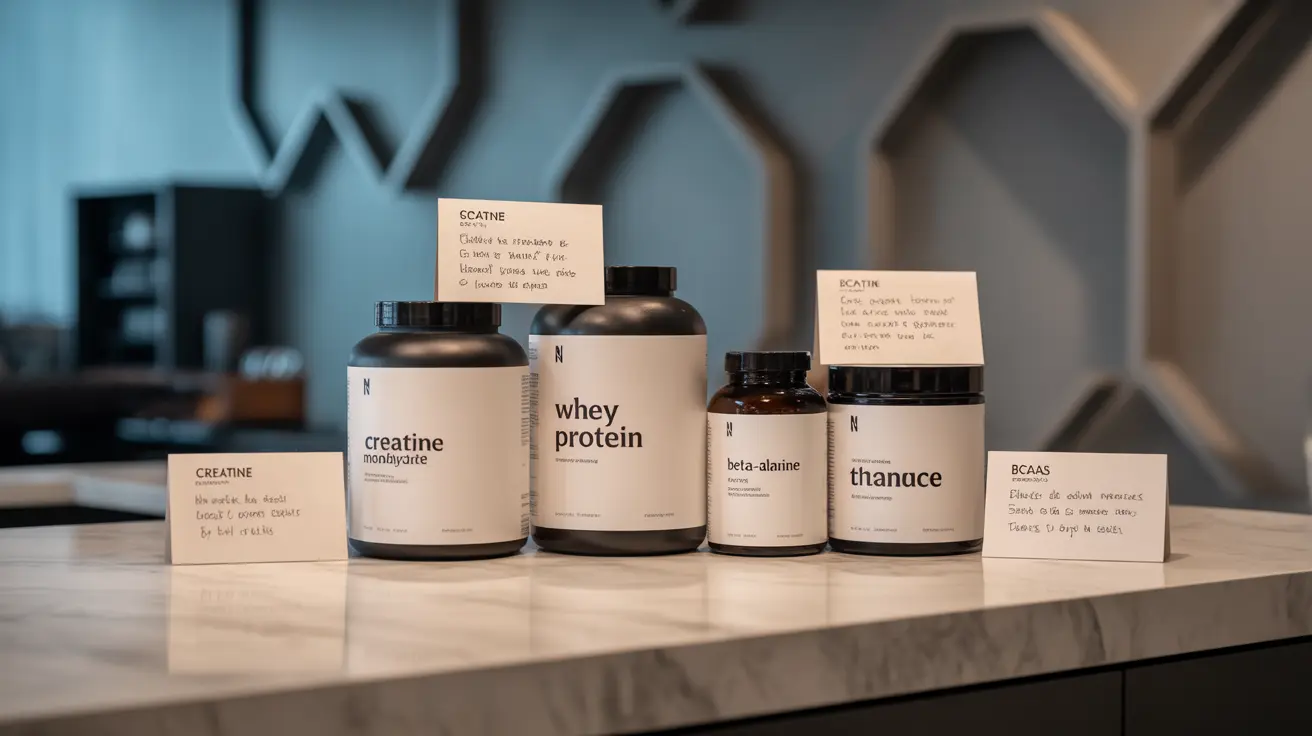Building muscle effectively requires more than just hitting the gym regularly. While proper nutrition and training form the foundation of muscle growth, certain supplements can provide the extra edge needed to maximize your results. Understanding which supplements truly work and how to use them safely is crucial for anyone serious about their muscle-building journey.
In this comprehensive guide, we'll explore the most effective supplements for muscle growth, with a special focus on creatine and other evidence-based options. We'll also discuss proper dosing, safety considerations, and how different populations can benefit from these supplements.
Top Supplements for Muscle Building Success
While creatine is often considered the gold standard for muscle growth supplements, several other options have shown promising results in scientific studies:
Protein Supplements
Protein powders, particularly whey protein, provide essential amino acids necessary for muscle repair and growth. Aim for 1.6-2.2 grams of protein per kilogram of body weight daily for optimal results.
Beta-Alanine
This amino acid helps improve muscle endurance during high-intensity workouts by reducing fatigue and increasing exercise capacity. Typical dosages range from 4-6 grams daily.
Branched-Chain Amino Acids (BCAAs)
BCAAs, especially leucine, play a crucial role in muscle protein synthesis and recovery. Consider taking 5-10 grams before or during workouts.
Understanding Creatine's Role in Muscle Development
Creatine monohydrate stands out as the most researched and effective supplement for muscle growth. It works by increasing phosphocreatine stores in your muscles, which helps produce more ATP (energy) during high-intensity exercise.
How Creatine Enhances Muscle Growth
Creatine supplementation can lead to:
- Increased muscle strength and power output
- Enhanced muscle cell volumization
- Improved recovery between sets
- Greater workout intensity capability
- Accelerated muscle fiber growth
Safe and Effective Creatine Usage
To maximize the benefits of creatine while minimizing potential side effects, follow these guidelines:
Recommended Dosing Protocol
Most people benefit from:
- Loading phase: 20g daily (split into 4 doses) for 5-7 days
- Maintenance phase: 3-5g daily thereafter
- Taking creatine with carbohydrates can enhance absorption
Safety Considerations for Different Populations
Creatine is generally safe for most people, including women, when used as directed. However, staying hydrated and starting with a lower dose can help minimize any potential digestive discomfort.
Frequently Asked Questions
What are the best supplements for muscle growth besides creatine?
The most effective supplements besides creatine include whey protein, beta-alanine, and BCAAs. These supplements work synergistically with proper nutrition and training to enhance muscle growth and recovery.
How does creatine supplementation help increase muscle size and strength?
Creatine increases muscle energy stores (phosphocreatine), enabling more intense workouts and better performance. It also draws water into muscle cells, promoting cell volumization and protein synthesis, leading to increased muscle size and strength.
Is creatine safe for women, and how does it affect muscle gain during hormonal changes?
Yes, creatine is safe for women and can be particularly beneficial during hormonal fluctuations. It supports muscle strength and recovery without causing masculine features or hormonal disruption. Women may notice improved exercise performance and lean muscle development.
What is the recommended dosage of creatine for maximizing muscle growth?
For optimal results, start with a loading phase of 20g daily (divided into 4 doses) for 5-7 days, followed by a maintenance dose of 3-5g daily. Some people may skip the loading phase and start directly with the maintenance dose.
Can creatine cause side effects, and how can I use it safely to support muscle gain?
While creatine is generally safe, some people may experience mild side effects like bloating or digestive discomfort. To minimize these effects, stay well-hydrated, take creatine with meals, and consider starting with a lower dose. If you have any pre-existing medical conditions, consult your healthcare provider before starting supplementation.




